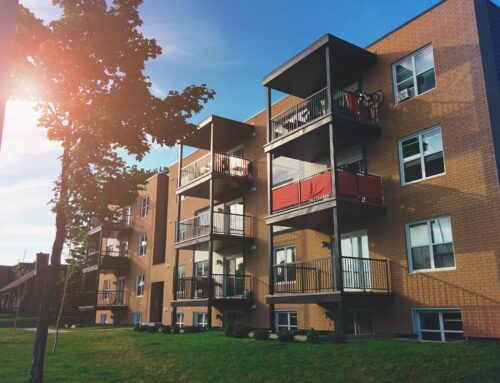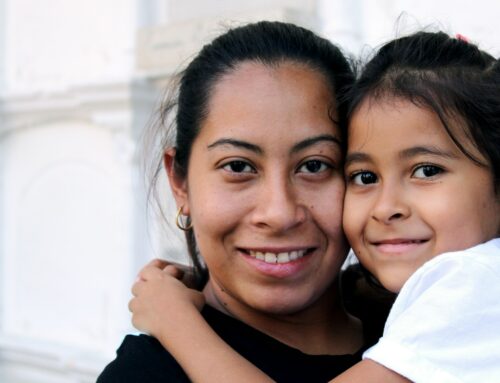Moving around the world can be a carefree and exhilarating adventure when you’re traveling light and flying solo. But when you want to go overseas with a family and children, things aren’t so simple. If you’re moving to Canada with a family, you will find the country very kind and welcoming, but you’ll need to be prepared.
There’s a lot more at stake when you’re trying to get settled with a family, and a lot more things can go wrong. But when done properly, the rewards can be tremendous. Immersing yourself and your family into Canadian life can be a fabulous experience.
Immigration Issues for Families
At ARIANNE Relocation, we typically work with families who have already handled their Canadian immigration procedures. But if you are still in this early stage, you will first need to determine which immigration program will be your best choice. You can start by reviewing our comprehensive article and complete guide to Canadian Immigration Options. If you need more specific legal advice, we would encourage you to speak with a Regulated Canadian Immigration Consultant (RCIC).
Most of our clients obtain Temporary or Permanent Residence with the help of their employers. Canada’s Federal Skilled Worker Program (FSWP) and Federal Skilled Trade Program (FSTP) provide a smooth path for immigrants with valuable skills and work experience in high demand professions like health care and engineering.
Also, if you know which province you want to move to, be sure to take a look at their Provincial Nominee Programs. Each province and territory of Canada offers numerous immigration streams for a wide variety of candidates. Various programs apply to employees, investors, students, recent graduates, and high demand professionals.
Keeping Families Together
The Canadian government and the IRCC (Immigration, Refugees and Citizenship Canada) place a high priority on keeping families together and respecting the family unit. If one family member comes to Canada and becomes a permanent resident, it’s relatively easy for other family members to join them.
As a Canadian resident or citizen, you can sponsor relatives for a Family Class Visa. Through this program, parents can sponsor their children, and husbands or wives can sponsor their spouses. The program even applies to adopted children and to same-sex couples. Also, parents and grandparents of a Canadian citizen or permanent resident can qualify for what’s called a Super Visa.
Moving to Canada with a Family
Once you have your immigration and residency documents in order, you can start thinking about the logistics of arriving and settling in a new country. Here are seven key issues to bear in mind when you and your family make the move to Canada. When you come prepared, you’ll be far more likely to have a successful and enjoyable relocation.
1. HOUSING
Keeping a roof over your head is a top priority no matter where you are. And all the more urgent when you’re trying to provide for your family in a new and unfamiliar city. Crashing on a buddy’s couch, even for just a couple nights, is simply not a viable option.
To ensure that your family doesn’t get left out in the cold, you have two basic options. You can make a preliminary trip to Canada in order to shop around for houses or apartments, and get something nailed down before the whole family gets on the plane. Or you can arrange for temporary housing, like a longer term AirBnB or a hotel with monthly rates, and stay there until you can find something more permanent.
Either approach has its pros and cons. By making arrangements in advance, it’s one major thing you won’t have to worry about when you make the big move. On the other hand, you might prefer to involve the whole family in the housing selection process. And you might be able to make a more well-informed decision once you’ve spent a few weeks living in your new city.
Your best bet will be to work with a local real estate agent who knows the city and truly understands the local market.
2. NEIGHBOURHOODS
When you’re considering your housing options, it will be very important to familiarize yourself with the different parts of town. Some neighbourhoods are going to be more popular for young families. And among those, some will be more expensive, and others might be more low income.
Certain neighbourhoods are going to be popular for young professionals and students, and might get noisy. Other parts of town may have great access to shopping, dining and entertainment. And then there are always those parts of the city that should be avoided after dark. Before you commit to a new home, be sure to check it out at different times of day, as neighbourhoods can change dramatically between day and night.
We have written several articles about the neighbourhoods of Montreal, Toronto, Vancouver and Calgary.
3. DAYCARE
If you have especially young children, you will need to get acquainted with the public and private daycare options in Canada. The specifics usually vary from province to province. We have covered this topic in great depth in our pair of articles on Choosing the best daycare in Montreal.
Most daycare facilities are carefully regulated by the government. Prices work on a sliding scale, so that families with higher incomes will pay higher rates, with the cost sometimes exceeding $20 per day per child. There are also unregulated daycare options which may have lower prices.
4. BABYSITTERS
If you have young children but don’t need full-time daycare, you might still be interested in finding a babysitter for those occasional nights out. Finding a reliable babysitter can be tricky, and there’s no government agency that oversees this unregulated business. You can look online through websites like kijiji or craigslist, but a better option would be to look for a personal recommendation. Start by asking some of the other parents at school. Somebody is bound to know a good babysitter, and you don’t want to leave your children with a lousy one. It sounds simple, but finding a good babysitter can be as important as finding a good auto mechanic or a good dentist.
5. HEALTHCARE
Speaking of dentists, don’t forget to enroll your family in a health insurance plan. This should be one of the very first things you do when you arrive in Canada. Generally speaking, Canadian healthcare is very comprehensive and reliable. Everyone in Canada has health insurance.
Each province has its own health insurance program, and larger companies usually arrange for their employees’ insurance, which is deducted from the salary along with other taxes. You will also have options for private healthcare if you want to pay an additional premium for more expanded coverage. In most cases, private insurance plans will also give you more freedom to choose your own doctors.
Be sure to check out our detailed article which explains Canadian Healthcare for Immigrants.
6. SCHOOLING
If you’re bringing school age children to Canada, you will need to understand how the school system works in Canada, and it’s slightly different in each province. Once you decide what city your moving to, you’ll want to read up on the different school districts in your area. That may have some influence over which neighbourhoood you choose to live in.
Like most countries, Canadians can choose between attending public schools which are free, or paying a tuition to attend a private school which may offer a special curriculum. In Montreal and the rest of Quebec, education is primarily in French. This in accordance with Bill 101. Most schools offer bilingual education, and in some cases students are eligible to attend primarily English-language schools. International schools are another option which many immigrant families consider.
And remember, ARIANNE’s city-specific Online Relocation Guides cover the Canadian and provincial education systems, as well as all the other topics in this article, in great detail.
7. PSYCHOLOGICAL PREPARATION
When you move to a new country, you are bound to run into all sorts of obstacles and surprises. In many cases, these hurdles can put put stress on the family relationships. People naturally form certain expectations before heading to a new country, and those expectations are never perfectly accurate. If someone is moving to Canada because of a job transfer, their spouse might feel like their just being dragged along.
No matter what the circumstances of your relocation may be, it’s critically important to speak often and openly with your partner and children as you move through the process. It’s especially important listen to your children and make them feel like they have a role in this gigantic decision. It’s easy to get caught up in the busy tasks of moving and forget to check in with your loved ones and make sure they’re still comfortable.
To get some more ideas about how to make the big move easier on the kids, take a look at the following articles:
- Moving to Canada with kids: Some helpful tips
- Helping your children cope with relocation
- Relocating with teenagers: The story of Camille in Canada
Conclusions
Moving to Canada with a family can be challenging, but with the proper preparation you can make it easier for yourself and your loved ones. The best strategy is to empower yourself by gathering information and knowing what to expect.
ARIANNE has been helping families and professionals relocate to Canada for more than 20 years and we’ve compiled our knowledge into a series of super comprehensive, city-specific Online Relocation Guides designed to answer all the questions that come up when you relocate to a new city in Canada.
To learn more about how we help people like you move more smoothly and successfully, check out our Let’s Get Started page. You can also check out our article on Where to live when moving to Canada.








Leave A Comment